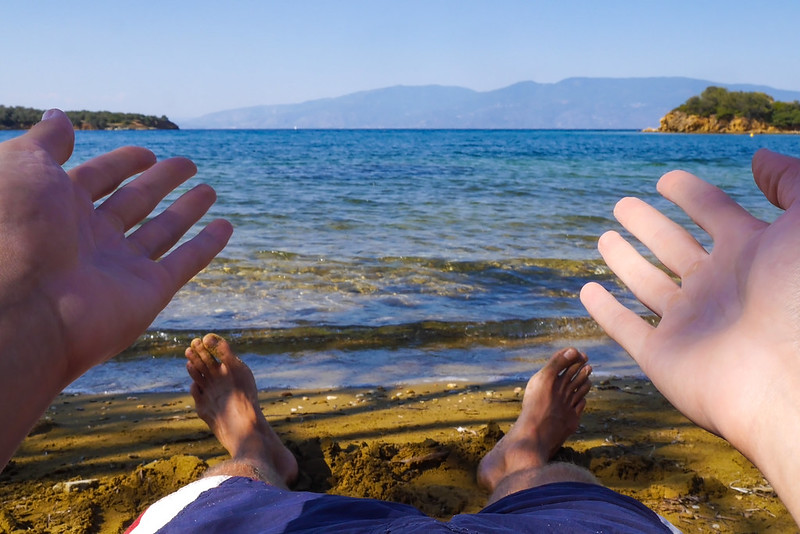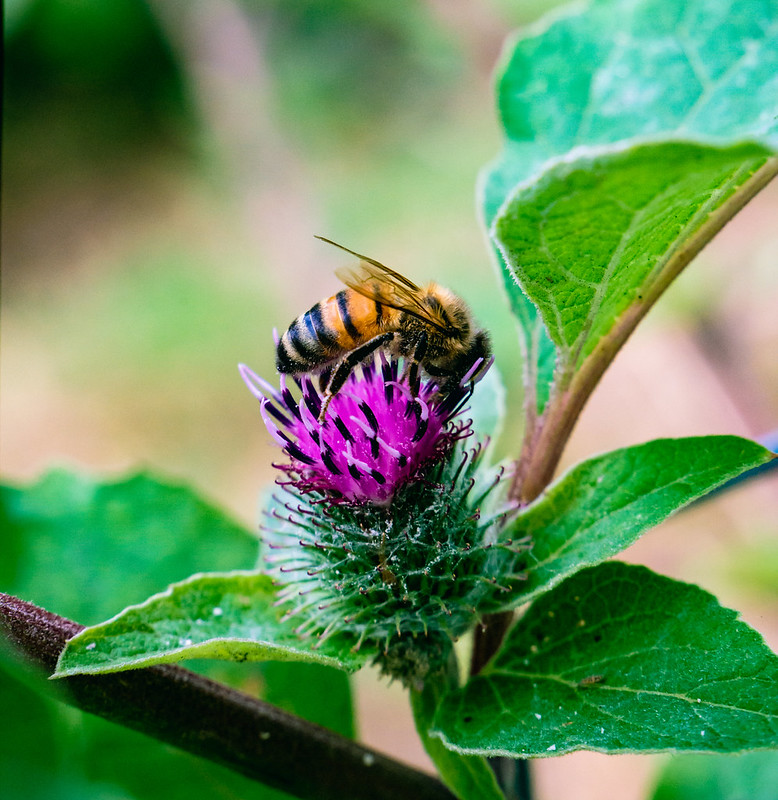5 of the Best Ways to be Calmer During These Stressful Times
If you're feeling overwhelmed and stressed out with everything that is going on in the world right now, it's totally understandable. With the global pandemic affecting countries across the planet, as well as the increasing threat of climate change, coupled with large scale uncertainty in many different countries worldwide there is undoubtedly a lot to be worried about.
Even reading the previous paragraph would be enough to make some people start feeling anxious! Of course, that is not my aim here; instead, I want to suggest practical ways that can help you to remain calmer during these stressful times. While it is impossible to control everything around us, especially the large scale global issues, there are many different easy changes that you can do to take control of how you feel, that will help to reduce stress levels in your life.
Here 5 of the best ways that can help you to be calmer during these stressful times:
Unfortunately, as humans increasingly live in urban areas, as well as spending more and more time indoors, whether this is in our homes, places of work or education, or our cars, we as a species are becoming increasingly disconnected from nature. There is ample evidence to suggest that it is this disconnect from nature that is leading to greater levels of stress, depression and lower levels of health.
“Nature itself is the best physician.” - Hippocrates (460 BC - 370 BC)
Hippocrates of Kos was a Greek physician who is considered to be one of the most important figures in the history of medicine and is often referred to as the "Father of Medicine", due to his role in revolutionising Ancient Greek medicine. Within this quote from him, belies a very important piece of wisdom that has stood the test of time, with increasing evidence from various scientific studies, such as a recent large-scale study conducted by the University of Derby and The Wildlife Trusts, showing just how true these words from him were!
It is more important than ever to regularly reconnect with nature, especially with everything that is happening in the world, because being immersed in natural surroundings helps to bring a real sense of peace and calm, with measurable mental and physical health benefits.
If you live in or near the countryside where there is a forest or woodland, a coastal area with a beach, or hills or mountains, you can make maximum use of nature by going for regular walks there, as well as combining this with other forms of exercise such as running or cycling. If you live in a more urban area where immersing yourself in nature may seem more difficult, try to find parks near you, ideally with lots of trees and other plants.
If you can, aim to go for walk in the park every day, whether that is before you start work or perhaps a lunchtime stroll, and this is almost guaranteed to help you calm you down and quiet the worries in your mind. While modern human life seems so rushed and frenetic, encouraging us to always be moving quickly when you spend time in nature you will notice how generally it is slower, calmer and much more relaxing.
Unfortunately, we are becoming increasingly addicted to our digital devices especially mobile/cell phones and the apps and programs they have on them. Rather than utilising these forms of technology to solve a problem when we really need them, it can feel like instead mobile phones, the internet, social media and other apps like YouTube, Spotify and videogames are running us.
One of the first things millions of people will do when they wake up and go to sleep at night, as well as multiple times during the day is to check their phones, scrolling through social media, reading news, watching videos, playing games, swiping through dating apps, chatting or more. There are many studies though, such as this one, that suggests that rather than benign devices that only offer benefits, this excessive use of mobile phones and the internet-enabled programs they offer, maybe causing stress, anxiety and depression, especially among younger people.
I had already noticed my own stress and anxiety levels peak when I overused digital devices like my mobile phone or laptop, the internet and associated apps, especially when it felt compulsive, rather than myself making a conscious decision. I then recently read an excellent book by Cal Newport entitled "Digital Minimalism - Choosing a Focused Life in a Noisy World", that offered fact-based evidence related to the stress-related problems this overuse creates, as well as excellent solutions to overcome this modern issue, one of which is a 30-day digital detox.
During this time Newport advises his readers to stop using all forms of digital technology such as social media apps, YouTube, email, your mobile phone etc. expect when absolutely necessary e.g. for work-related purposes. Once this month is over, you can then decide which of this technology is actually beneficial to your life and which you are merely using out of compulsion, thus hopefully ending the addiction and dramatically improving your relationship with technology, in turn allowing you to feel calmer and less stressed. There are several apps I deleted during this time which since ending my digital detox I have not re-downloaded and I can honestly say, I don't miss them at all.
3. Exercise and Physical Activity
One of the best ways that you can overcome stress and feel healthier both physically and mentally is to exercise or do regular physical activity. For the majority of human existence, as a species, we have been active daily; our bodies are of course designed for movement.
In the same way that we have become increasingly disconnected from nature and over-connected to digital devices though, we have also become increasingly sedentary, as we choose to drive rather than walk, sit at desks working on our computers, sit watching TV in the evenings and get shopping delivered to our homes.
Much of modern life is marketed as convenient and positive, but in many ways, it is making us unhealthier and unhappier. Mental and physical health used to be seen as separate, but there is now overwhelming evidence showing how important maintaining a healthy body is to stay mentally fit and healthy.
There are many reasons why exercise is good for mental health including the way it promotes the release of feel-good hormones into the body such as endorphins, a type of neurotransmitter which help to relieve pain and stress, as well as brain chemicals such as dopamine, norepinephrine, and serotonin, that all play an important role in regulating your mood.
In addition to these feel-good chemicals, exercise can help to take your mind off of situations, such as the current global pandemic or more day to day worries like work, that may be stressing you out. It might be tempting to use the excuse that you don't enjoy the gym or it's too expensive or far away, but exercise doesn't have to involve paying for a gym or having any expensive equipment at all.
There are countless workout, yoga and pilates videos available for free on YouTube, many of which involve either no equipment or a few cheap items such as a yoga mat or some weights. You can also go out for walks, runs or bike rides. These are especially good, as it means you will be outdoors getting fresh air and sunlight and can be combined with being in nature, such as a park, woodland/forest or along the coast next to the sea!
Videos, blog posts and podcasts advised people that to be successful it is important to 'hustle' and work as hard as possible. If you were building a business you were made to feel lazy if you weren't getting home from your Monday-Friday 9-5 regular job, then working relentlessly on your own business until two in the morning during weekdays, as well as the entire weekend.
This may be possible for a short period and there is nothing wrong with spending time in the evening and weekends working on a side-business that you are building up, while you also hold down a regular job, but missing out on sleep and adequate rest and recovery time for months or years at a time can have significant long term damaging effects on your physical and mental health.
This will include putting yourself under unnecessary levels of stress, that can certainly have other knock-on negative effects. Getting quality sleep every night as well as adequate rest each week is a vital component in helping you to stay calmer, especially during these very stressful times.
What tends to happen if you go to bed late, or get a bad night's sleep due to factors such as consuming alcohol or caffeine, or looking at your phone before sleeping, is that you will wake up feeling groggy the next day. This is very likely to affect your mood and mean you consume coffee to try and stay alert during the day.
It will mean you are less likely to be able to perform well at work or feel energetic enough to do exercise, cook healthy meals or socialise with family and friends. You may end up consuming unhealthy food, drinking too much caffeine during the day, going to bed late again and having another poor night's sleep, thus creating a vicious cycle. On the other hand, by contrast, if you get regular quality sleep, this is very likely to lead to many other positive effects and benefits!
“We are what we repeatedly do. Excellence, then, is not an act, but a habit.” ― 384–322 BC)
A practice that I have tried to implement in my daily life, or at the very least two to three times per week, is to keep a gratitude journal. In the mornings I take a moment to write down three different things that I am grateful for. These don't have to be anything big or impressive, rather the little things that I may have been taking for granted.
It's important to try to list different points each day so that your mind stays engaged in this practice and doesn't start taking these things for granted, for you to truly feel gratitude and get the benefits from this. These can be things such as "I'm grateful that I was able to talk to my family on the phone yesterday", "I'm grateful for the restful night's sleep I had", or "I'm grateful to hear the beautiful birdsong outside my window".
"Research shows that grateful people tend to be healthy and happy. They exhibit lower levels of stress and depression, cope better with adversity and sleep better. They tend to be happier and more satisfied with life. Even their partners tend to be more content with their relationships." - Richard Gunderman, the Chancellor's Professor of medicine, liberal arts and philanthropy at Indiana University.
- Reconnecting with nature
- Using technology more intentionally
- Exercising and/or doing physical activity regularly
- Getting quality sleep and rest
- Gratitude
Let me know your best tips and techniques for being calmer during stressful times below in the comments. If you enjoyed this article and feel it could be of benefit to others, please share on social media. Thanks for reading!







Comments
Post a Comment